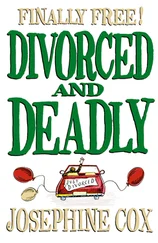Frank Tallis - Deadly Communion
Здесь есть возможность читать онлайн «Frank Tallis - Deadly Communion» весь текст электронной книги совершенно бесплатно (целиком полную версию без сокращений). В некоторых случаях можно слушать аудио, скачать через торрент в формате fb2 и присутствует краткое содержание. Жанр: Исторический детектив, на английском языке. Описание произведения, (предисловие) а так же отзывы посетителей доступны на портале библиотеки ЛибКат.
- Название:Deadly Communion
- Автор:
- Жанр:
- Год:неизвестен
- ISBN:нет данных
- Рейтинг книги:3 / 5. Голосов: 1
-
Избранное:Добавить в избранное
- Отзывы:
-
Ваша оценка:
- 60
- 1
- 2
- 3
- 4
- 5
Deadly Communion: краткое содержание, описание и аннотация
Предлагаем к чтению аннотацию, описание, краткое содержание или предисловие (зависит от того, что написал сам автор книги «Deadly Communion»). Если вы не нашли необходимую информацию о книге — напишите в комментариях, мы постараемся отыскать её.
Deadly Communion — читать онлайн бесплатно полную книгу (весь текст) целиком
Ниже представлен текст книги, разбитый по страницам. Система сохранения места последней прочитанной страницы, позволяет с удобством читать онлайн бесплатно книгу «Deadly Communion», без необходимости каждый раз заново искать на чём Вы остановились. Поставьте закладку, и сможете в любой момент перейти на страницу, на которой закончили чтение.
Интервал:
Закладка:
There was an uncomfortable silence.
Rheinhardt ventured an appeasing smile. He realised that he might have gone too far.
‘I’m sorry, Max: I am tired and hungry. You are a peculiar breed — you psychiatrists — but invaluable, nevertheless.’ Liebermann inclined his head.
‘What do you want to do about Erstweiler?’
The sentence was delivered with a certain frosty reserve.
‘Good heavens! Erstweiler! Our trip out to Simmering feels like ancient history!’
‘I’ll be seeing him again tomorrow morning. Perhaps you should be here.’
‘Ten-thirty? Would that be convenient?’
‘It would indeed.’
Rheinhardt stood up and slapped a heavy hand on Liebermann’s shoulder.
‘Well done, Max. You’re a courageous fellow.’ The young doctor shrugged. ‘Could I interest you in a late dinner at Cafe Eiles?’
Liebermann returned Rheinhardt’s smile.
‘I was about to suggest something very similar myself.’
50
Kristina was sitting at her dressing table, inspecting her face in the mirror. A thin line had appeared which she had never noticed before, a hairline crack curving around her mouth. When her expression was neutral the mark was insignificant, as subtle as the craquelure in varnish. Indeed, she had to tilt her head in the light to see it. But if she smiled the line deepened.
Perhaps she had been laughing too much lately? Perhaps this was the cost of happiness? When she was younger, there had been very little to laugh about and her skin had been taut and smooth. She had been wrong — and more than a little naive — to assume that success and contentment would come without complications.
The house was silent. Her husband Heinz had not yet returned. The old general was dying, and the good doctor was doing all that he could to make the war hero’s last hours as comfortable as possible. Heinz was a good man. She did not like keeping things from him, but in this particular instance there really was no alternative.
I’ll do it now, she thought. Get it over with.
Kristina rose from her dressing table and crossed to the wall on which Czeschka’s Ashputtel lithographs were hanging.
Her mind went back to the day when the detective from the security office had come to question her. She remembered the young doctor who had accompanied him. What was it he had said? Something about the lithographs being very fitting, given her occupation. He had made her quite anxious by standing so close.
Kristina followed the wall, pausing to consider each tableau. It was like participating in the fairy-tale equivalent of the Via Crucis: the stepsisters, Ashputtel by the wishing tree, the handsome Prince. The final lithograph was a portrait of Ashputtel with a white dove perched on her shoulder. An inscription below the image read ‘For she is the true one’. Kristina pulled the bottom of the frame away from the wall and caught two sheets of paper as they fell from their place of concealment.
The first was a drawing of a naked girl lying on a divan. Her legs were parted, exposing her sex. She was wearing black stockings which were too large and had slipped down her skinny thighs. The collapsed silk had been executed with exquisite precision. A small but distinctive oval mole below the girl’s belly button had not escaped the artist’s meticulous eye.
The second drawing was of the same girl standing with a companion of roughly the same age. They were both naked and wore sulky expressions. Again, the oval mole was clearly visible.
Kristina stared at the images for some time and a few tears trickled down her cheeks. She wiped them away with the sleeve of her kimono and, bracing herself, crossed over to the enamel stove. She crouched down and opened the door in its base, releasing a blast of heat.
A complex set of emotions stayed her hand.
It felt very wrong to be burning art. Of course, the artist’s choice of subject matter was questionable but there was no denying his talent. And more importantly still, by proceeding with this barbarous act she felt that she was — in a sense — doing violence to herself.
Such considerations had made it impossible for her to destroy the drawings when she had first acquired them. Instead of doing what was necessary she had stupidly hidden them behind the lithograph of Ashputtel and the white dove. What if the young doctor had touched the frame — and the drawings had fallen to the floor? She could not afford to be sentimental.
Kristina posted the first drawing into the stove. She watched the paper blacken, curl and then burst into flames. Something close to grief tightened her chest and her breath became laboured as she watched the image of the girl turning to ashes. Curiously, the bottom right-hand corner of the drawing resisted ignition, managing by some accident of physics to preserve its existence for a few more seconds more.
Kristina read the signature: Rainmayr.
The paper turned from yellow to brown and then shrivelled to nothing.
51
‘Herr Doctor, I am concerned that we are not making very much progress,’ said Erstweiler.
Liebermann looked down at his supine patient and after a brief pause replied: ‘I am sorry that you are dissatisfied.’
‘My condition,’ Erstweiler continued, ‘or, rather, the natural state of anxiety that arises from my unusual situation remains unchanged. I cannot sleep, my bowels are still loose — and every moment of the day I live in dread of his appearance. You will forgive me, I hope, for questioning the efficacy of this treatment of yours. What did you call it?’
‘Psychoanalysis.’
‘None of the other patients are receiving it.’
‘No. It’s new.’
‘The modern world is too enamoured of novelty. Just because something is new does not mean that it is better.’ Erstweiler was clearly depressed and showing the irritability so typical of patients whose mood was low. ‘Perhaps the time has come, Herr doctor, to try something different. What about hydrotherapy?’
‘I do not think hydrotherapy will be very helpful.’
‘Why not? It helped that chap who kept on shouting about the Hungarians coming. When he returned to the ward after hydrotherapy he was much better.’
‘I do not think hydrotherapy is the appropriate treatment for your condition.’
‘What condition?’ Erstweiler raised his arms and let them fall heavily on the rest bed. ‘I have seen my doppelganger … and if I see him again that will probably be the end of me. I am tired of all this talking, Herr doctor.’
‘Then perhaps you should try listening. Psychoanalysis is a listening cure as well as a talking one. It demands that I — for the most part — listen to you. But sometimes you must listen to me. I have been thinking about your dream, Herr Erstweiler, the dream of the English fairy story.’
‘What of it, Herr doctor? It was only a dream!’
Erstweiler sighed — exhausted by his own impatience.
‘Dreams,’ said Liebermann, ‘are shaped by processes in the mind that obey certain laws or principles. If one is conversant with those principles it is possible to interpret dreams. Dreams are the royal road to the unconscious.’
‘The unconscious?’
‘That greater part of the mind — ordinarily inaccessible — wherein can be discovered the answers to the most puzzling questions about human experience: in your case,’ Liebermann clapped his hands together lightly, ‘why it is that you have hallucinations of a double. It is my belief that the cause of your hallucinations is a set of memories buried in your unconscious. And your dream gives us some indication as to what those memories relate to.’
Читать дальшеИнтервал:
Закладка:
Похожие книги на «Deadly Communion»
Представляем Вашему вниманию похожие книги на «Deadly Communion» списком для выбора. Мы отобрали схожую по названию и смыслу литературу в надежде предоставить читателям больше вариантов отыскать новые, интересные, ещё непрочитанные произведения.
Обсуждение, отзывы о книге «Deadly Communion» и просто собственные мнения читателей. Оставьте ваши комментарии, напишите, что Вы думаете о произведении, его смысле или главных героях. Укажите что конкретно понравилось, а что нет, и почему Вы так считаете.












